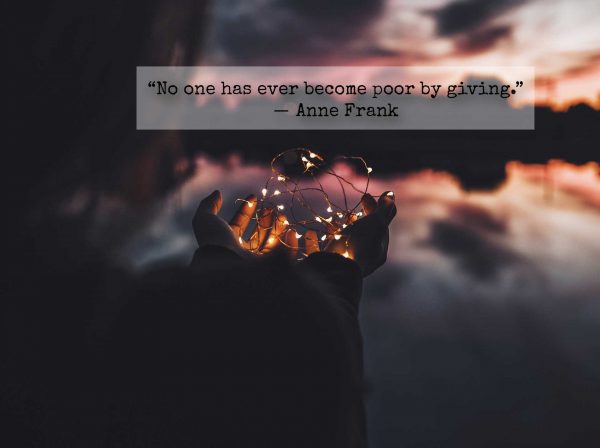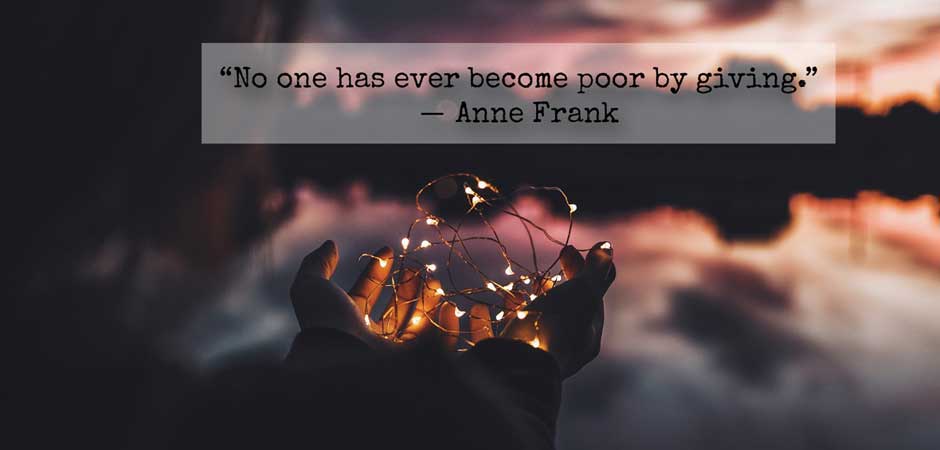
It’s October, which means it is Breast Cancer Awareness Month. It also means you’ll see stores drowning in pink, looking to sell you everything from t-shirts and scarves to light bulbs and yard signs, many of which claim that an undefined “portion” of the sales go toward fighting the disease. People have good intentions and genuinely want to help, but it takes more than wearing a pink pin to save and extend women’s lives. It takes real money focused and funneled toward research and support. But there are so many organizations to donate to, how do you choose? We at Sweatpants & Coffee suggest the following, who will make every one of your dollars count and put every one of them to use.
Excerpted from their site:
“METAvivor exists to sustain hope for those living with stage 4 metastatic breast cancer (MBC). We are a volunteer-led, non-profit organization that funds vital research to help improve the longevity and quality of life for MBC patients. Passionately committed patients ourselves, we rally public attention to the urgent needs of the MBC community, help patients find strength through support and purpose, and make every dollar count as we work with researchers to extend and improve quality of life for MBC patients.
METAvivor is the only organization in the US that exclusively funds MBC research through a scientific peer-review process. We award research grants to individuals with a clinical or other doctoral degree who are actively engaged in areas of metastatic breast cancer research, and whose proposals show distinct promise in making a difference for the stage 4 breast cancer community.
Our mission is to transition metastatic breast cancer from a terminal diagnosis to a chronic, manageable disease with a decent quality of life.
METAvivor is run entirely by volunteers, most of whom are living with metastatic breast cancer. We work to obtain grants and corporate sponsors to support our operational expenses. This allows us to ensure that donations can be entirely dedicated to our research grants that fund the cutting edge research that will ultimately save lives. Unless otherwise specified by the donor, 100% of every donation and 100% of proceeds from every fundraiser (after event expenses) goes into our research grants.”
Excerpted from their site:
“Our mission is to support progressive research on processes fundamental to metastasis. This includes supporting the exchange of information between researchers, clinicians, industry, and patients globally. We also strive to educate the public about metastatic cancer and raise awareness about insufficient funding for metastatic research worldwide.
Our broad vision is to de-throne metastasis as a disease that steals lives by obtaining research results that translate to patients having an optimal quality of life while managing metastasis as a chronic condition, with the ultimate goal of achieving a cure.”
Excerpted from their site:
“MET UP is committed to changing the landscape of metastatic cancer through direct action. We protest and demonstrate; we meet with government and health officials and researchers; we support research into metastatic disease; and we speak out against the sexualizing of breast cancer. We are convinced that the deaths of women and men from metastatic breast cancer are a paramount issue, and we pledge ourselves to oppose all who deny the reality of the 522,000 people who will die from metastatic breast cancer globally every year while waiting for a cure to be found.
It was Sunday, April 12, 2015, in the wee, dark hours of the morning, when the seeds were planted. Calls were made. Texts were sent. A spark flashed in a hotel in Philadelphia.
Later, not long before noon, the spark caught in flame. 108 women lay down in repose, row upon row, dying for the 108 who were dying that day in the United States.
We lost someone near and dear to many of us that day in actuality, something we learned about by the afternoon as the Living Beyond Breast Cancer 9th Metastatic Breast Cancer Conference came to an end, and people departed for home.
Blogs were written, both about the die-in and the death, and comparisons were drawn between this new breath of passion, and ACT UP.
Jennie Grimes returned home, clear across the country, and registered MET UP. There was a basic site, a placeholder, promising something to come. But treatment sapped her energy, and Susanne Kraus-Dahlgren offered to take the flag up the hill. Networking began to happen, and people were reached. Beth Caldwell, the organizer of the first die-in, was brought on board, along with Susan Rahn. More people spoke up, ideas were exchanged, and hearts caught fire. Melissa McAllister joined the graphics team, and Kate Crawford offered additional help in the realm of website creation and organizational experience.
The number of 108 was updated from current statistics to 110 and then changed to 1,430 to reflect the deaths on a global scale, expanding beyond the borders of the United States.”
Excerpted from their site:
“A letter from our founder, Dr. Rebecca Timlin-Scalera:
“When I was first diagnosed with breast cancer, I was told it had already spread to my bones and I was at Stage 4, metastatic breast cancer (mbc) with an average of just 3 years to live. Time stood still while I struggled to make sense of this gut-wrenching news. I remember going to bed that first night wracking my brain thinking of what I could do to save my life. I would do anything. I was 43. My kids were 7 and 10.
Weeks later, we experienced a miracle. My bone biopsy came back negative – there was no evidence of cancer in the bones. I was upgraded to Stage 3C, and told “Now we go for a cure.” Huh? What we were going for before?! Suddenly, instead of being devastated by having Stage 3C cancer, I was brought to my knees in tears of gratitude that it had not progressed to Stage 4. Thus began my education on the HUGE difference between early and late stage breast cancer, and the dire need for more funding for Stage 4, which is the basis of this foundation. I vowed then and there not to leave anyone with Stage 4 behind, and I will keep working until we ALL have a chance “to go for a cure.” Here are the facts I learned that led to the creation of The Cancer Couch:
1 in 8 women will be diagnosed with invasive breast cancer in their lifetime. 6-10 % are diagnosed at Stage 4 from the beginning (de novo), the rest are diagnosed at Stages 1-3 (early). 30% of those diagnosed with early stage breast cancer will eventually be re-diagnosed with mbc (Stage 4). There is no cure for Stage 4. People living with this will be in treatment for the rest of their shortened lives. More than 40,000 people die each year from mbc in the US alone. Very little of the funding for breast cancer research goes to studying treatment for mbc. Many “metsters” feel, due to this lack of funding and awareness about this stage of the disease, that they are being left to die. No one explains this better than Holley Kitchen in her awareness video. Holly died in January 2016.
I will never, ever forget what it felt like to have Stage 4, knowing there is no cure, and I will never leave behind those who are still living with this, or stop fighting in honor of those we’ve lost – like my beloved friend Sam Stohr, Holly Kitchen, and too many others. On April 26, 2015 we became an official 501c3 (Tax ID 81-1529788). Please support The Cancer Couch Foundation in our mission to accelerate treatment, and someday find a cure, for mbc.”
The Fred Hutchinson Cancer Research Center
Excerpted from their site:
“In 2002, Fred Hutch researchers working on the Women’s Health Initiative identified a major risk factor for lobular breast cancer: hormone replacement therapy. This landmark finding prompted millions of women to stop taking these commonly prescribed drugs, which caused not only breast cancer but also heart disease, stroke and dangerous blood clots. Our researchers continue to explore every aspect of breast cancer, from risk factors to potential cures.
Treatment for breast cancer generally involves a combination of surgery, chemotherapy and radiation. Anti-hormone drugs are also commonly used with ER+ disease. Fred Hutch researchers are refining these longstanding treatments, where possible, to reduce toxic side effects. Our scientists are also working to develop new targeted therapies and immunotherapies, including vaccines.
Breast cancer research at Fred Hutch is all-encompassing. Our scientists pinpoint new risk factors and improve detection. We delve into the genetic drivers of the disease, finesse current therapies and develop new ones. Our scientists strive to enhance survivorship and patient outcomes. And we work to develop curative therapies for metastasis and reduce the health disparities and global burden of this cancer.”





Leave a Reply